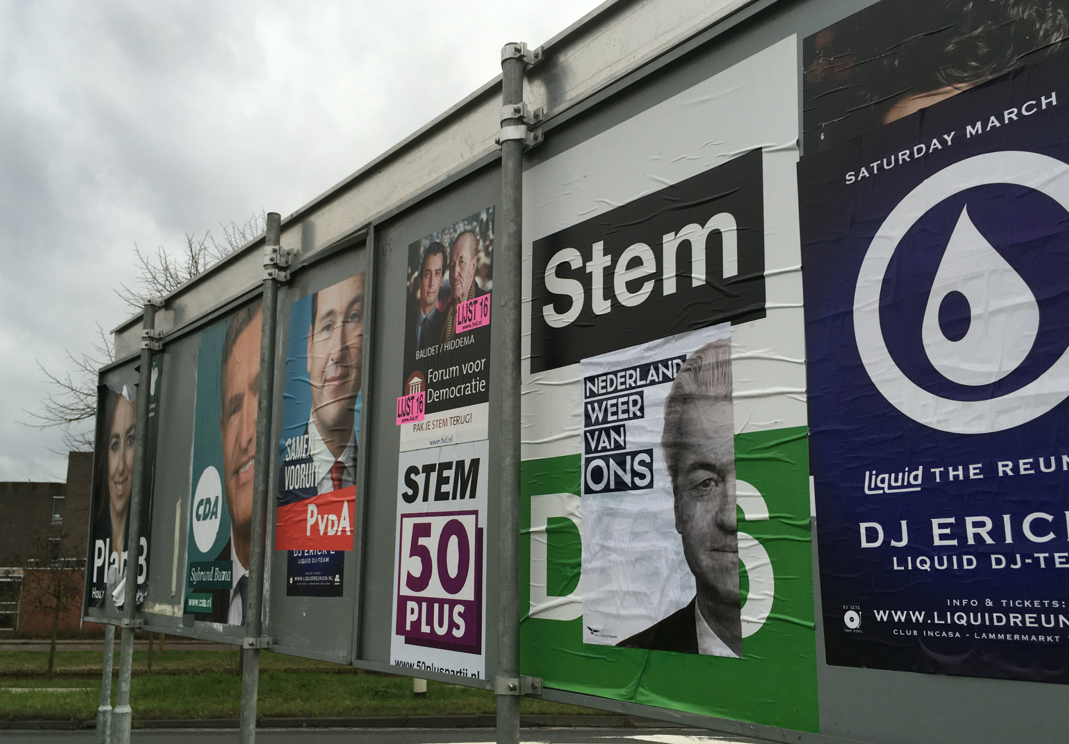True or false? Fact checking the politicians during big tv debate

 Both the Volkskrant and NRC were feverishly fact checking during Sunday’s election debate between the leaders of eight of the biggest parties. Here is a summary of what they found.
Both the Volkskrant and NRC were feverishly fact checking during Sunday’s election debate between the leaders of eight of the biggest parties. Here is a summary of what they found.
Europe
‘Two referenda results were ignored. No wonder the support for the EU in the Netherlands is diminishing,’ claimed SP leader Emile Roemer. According to the NRC, the opposite has been happening.
The latest figure (Eurobarometer 2016) shows support for the EU is 53%, the highest percentage since 2012. Support for a ‘nexit’ fell from 24% to 20% in the same period. The Volkskrant fact checkers put the nexit vote at 25%.
Health insurance
In 2016 six million people paid up the whole of the health insurance charge, said Roemer, who is advocating its abolition. The NRC caught Roemer in a slight mistake: he was referring to figures from 2015 when 6.1 people coughed up the entire €385. The figures for 2016 aren’t in yet.
Norms and values
’90 percent of people feel the decline in norms and values is the biggest problem of the moment,’ said CDA leader Sybrand Buma. He was basing this figure on an Ipsos poll among 1,103 voters. According to this poll 40% checked the box ‘very concerned’ when asked about the perceived decline, while 46% claimed to be ‘somewhat concerned’.
But the pollsters did not actually ask respondents what their biggest headache was, the NRC pointed out. The CPB did ask and the ‘biggest problem’ turns out to be immigration and integration, the NRC fact checkers found.
The elderly
GroenLinks leader Jesse Klaver said spending power for the elderly will not increase if the VVD got back into power. The fact checkers dived into the CPB’s Keuzes in Kaart in which the independent institute calculates the financial effects of the parties’ electoral promises. It turns out Klaver is right: the median increase for elderly will be exactly zero.
Another statement by Klaver concerning the elderly didn’t pass muster, however. According to Klaver some 80,000 elderly are having to go to food banks because they can’t make ends meet.
While according to CPB figures 3%, or 74,000, of over-65s are living below the poverty line, food bank figures from 2015 show that only 7,000 of the 88,000 people who knocked on their door were, in fact, over 65. So quite a few elderly are poor but not all go to the food bank.
Pension age
‘More than half of people want the pension age to go back to 65,’ said Henk Krol of 50plus, basing his figures on two polls. The fact checkers of the NRC and the Volkskrant both traced this statement back to a NU.nl poll but deemed it unreliable because respondents are volunteers and not chosen at random.
The other poll, by Maurice de Hond, among 2,500 people puts the percentage at 52%. The NRC puts this statement under ‘half-true’.
Integration
People with a different background feel ‘excluded’. This statement from GroenLinks leader Klaver is true, according to the NRC fact checkers who found an SCP report from 2011 in which people with a Moroccan, Turkish, Antillean or Surinamese background said they felt less accepted than 10 years before.
Wilhelmus
‘We have the oldest and most beautiful national anthem in the world,’ stated CDA’s Sybrand Buma. The Wilhelmus was written somewhere between 1568 and 1572 and that is older than other national anthems, the fact checkers found.
The problem for Buma is that it was not used as a national anthem until 1932, long after, for instance, the Marseillaise, which became the French national anthem in 1795. Even the American Star-Spangled Banner pips the Wilhelmus to the post: it became the national anthem in 1931.
No worldwide figures are, apparently, available to gauge which national anthem is deemed ‘most beautiful’.
Thank you for donating to DutchNews.nl.
We could not provide the Dutch News service, and keep it free of charge, without the generous support of our readers. Your donations allow us to report on issues you tell us matter, and provide you with a summary of the most important Dutch news each day.
Make a donation